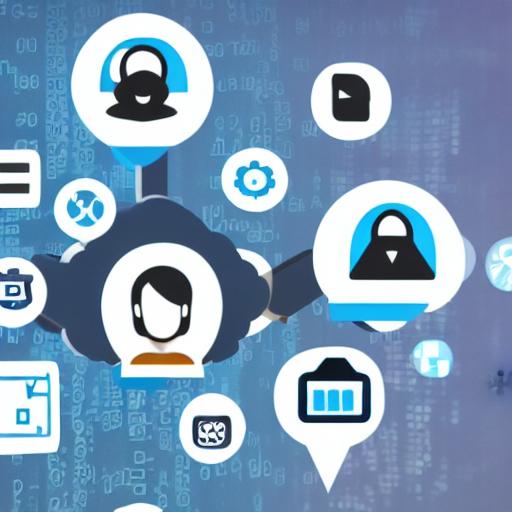In the artificial intelligence (AI) industry today, there is a lot of fear mongering, especially as ChatGPT, Google’s Bard, and Stability AI become wildly popular. Many predict that conversational, generative, and other AI models will radically alter our way of life and employment.
Although 37% of Americans worry about AI destroying the world and taking our jobs, this may be true. AI will liberate humanity from repetitive mental labor, open up new career opportunities, and unleash people’s creativity if we can accept it. This enormous technological advancement will significantly contribute to the advancement of humanity and the expansion of our economies.
Change your perspective on AI
The steam engine was to the human body what artificial intelligence is to the mind. People were concerned that advancements like the steam engine might supplant them. Instead, it significantly raised output, the number of manufacturing jobs available, wages, and, in essence, the middle class.
The combination of people and technology strengthens us. 90% of today’s workers, according to research, are working on routine, frequently uninteresting activities. We can become more productive at work and be freed from pointless labor thanks to AI.
There has never been a successful technology we have created that did not make people stronger. With the introduction of the automobile, we can move more quickly and are kept dry during rainstorms. We can communicate with people thousands of miles away at the speed of light thanks to mobile phones. 93% of Americans currently use Google auto-correct. This early AI tool has helped my English tremendously as a non-native speaker, strengthening it.
In a similar way, developments in AI will allow humans to explore a completely new world. The greatest way to put it was by Google CEO Sundar Pichai at the 2018 World Economic Forum, AI is perhaps the most significant endeavor that humanity has ever undertaken. Compared to fire or electricity, He considers it to be more meaningful. In retrospect, it seems clear that he was correct. It’s time for us to accept AI and use it to accomplish goals that were previously regarded as impossibly difficult.
Future of employment and AI
In the professional environment, a “middle person” has always existed. These days, you can contact drivers directly through Uber and Lyft. Thousands of auditions were required for actors and singers in order to establish themselves in the business. Nowadays, anyone may utilize TikTok or YouTube to get fame without going through the conventional screening process. The same could occur with NFTs; would we still visit all of these art galleries in the future?
All of these instances support the assertion that modern technology will only enable the typical American to achieve greater heights. It will give us professional superpowers.
According to Dell Technologies, 85% of the occupations in 2030 won’t even exist yet. This necessitates a change in strategy for firms and our current workforce, as observed by Deloitte. Meaning that we must get the necessary abilities to master technology like AI if we want to be flexible, competitive, and prepared for future employment. The advantages of these technologies in boosting production, efficiency, and profitability are acknowledged by innovators.
The advantages are already clear. Although GPT-4 and ChatGPT are still in their infancy, they have already shown themselves to be helpful for programmers and open up mainstream AI to non-technical people.
However, the potential is much greater. Consider utilizing a chatbot to answer to all of your work emails or to read a lengthy report and summarize the most important parts. Imagine a scenario in which individuals are trained to utilize AI tools rather than people to perform certain jobs, such as drafting a blog post or a thesis on research findings, delivering quarterly analyses, or creating PowerPoint presentations. Anyone can now use ChatGPT to transform their ordinary speech into a formal document that uses the “language” of a marketer, lawyer, doctor, or any other professional.
In the meantime, Stability AI is changing industries like filmmaking and professions. It avoids the need for a team to pay millions to travel to New York City to film by synthesizing backgrounds, faces, costumes, and other materials. They can instead use AI to simulate New York City. Imagine a world if creating an episode of one of my favourite shows, Game of Thrones, didn’t cost upwards of $20 million but could instead be completed at a kitchen table.
Our educational system will undergo a major transformation thanks to AI, which will also democratize formerly exclusive professions. Professional development programs and the work that professionals conduct will appear significantly different from how they do now. A day will come when our children do not need to be taught how to spell, write an essay, or drive a car for that matter, similar to the huge drop in cursive writing that has occurred due to AI. For instance, maths will always be crucial, but the professional skills of the future won’t involve programming computers but rather teaching them to arrive at the right answer or result.
Potential applications of AI
We have always desired advancement as people. Because we have been open-minded and naturally put learning first, we have been able to learn and adapt to new circumstances and ways of being. This has led us to where we are today. AI achieves a degree of effectiveness and competence that is unrivalled. It may offer countless opportunities in the years to come, therefore we must be open-minded to them. Yes, technology will alter the way we live and work, but fear not; these changes will be for the better and in more significant ways.













